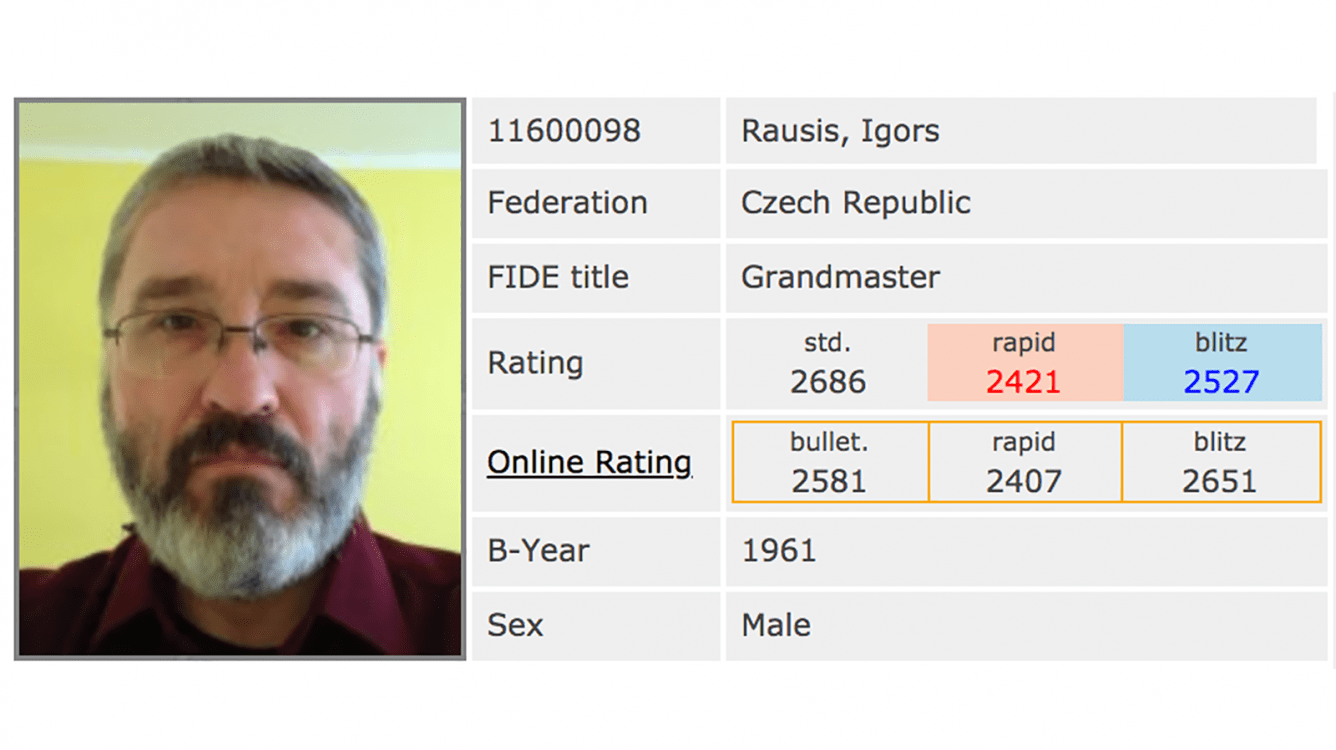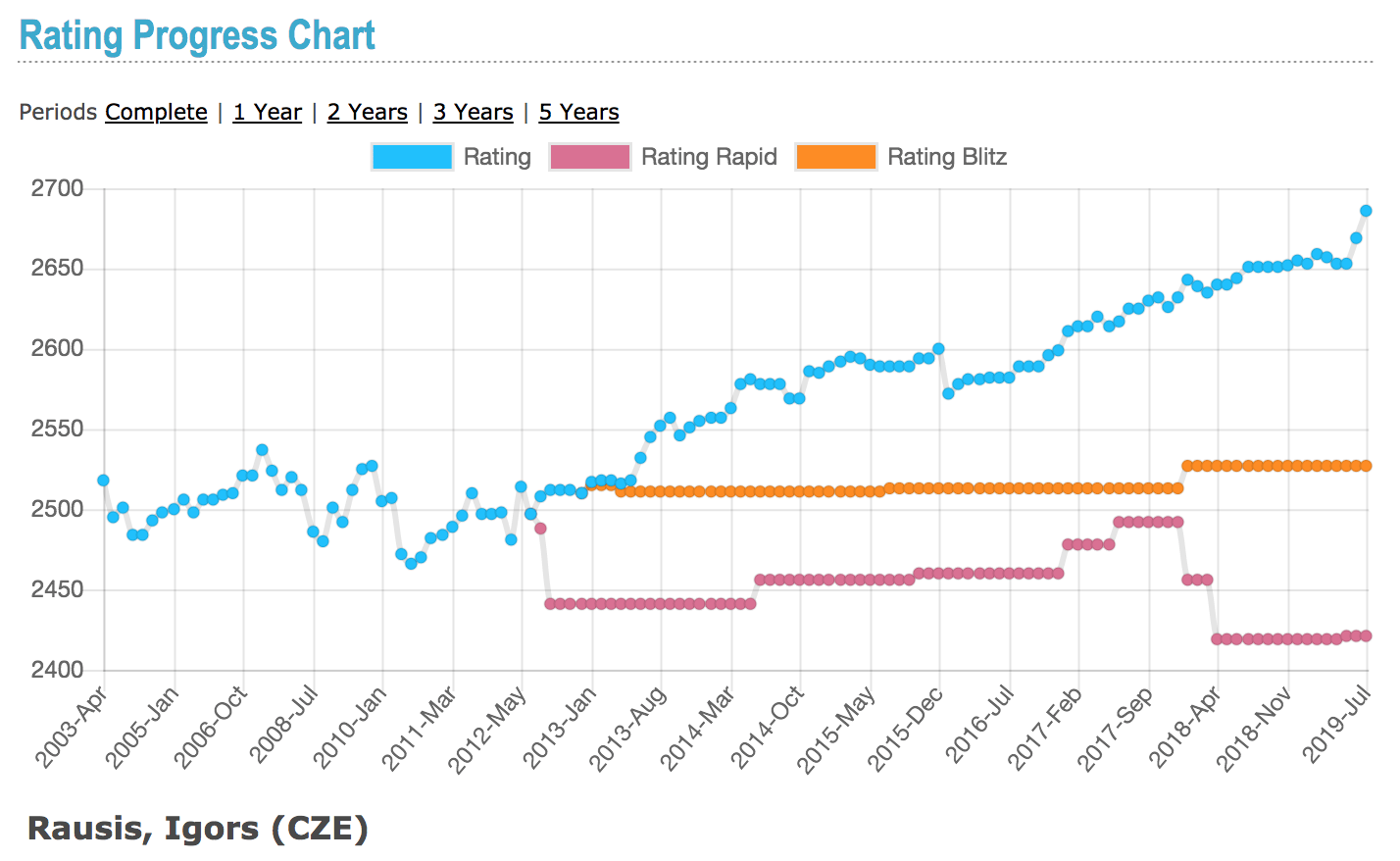
GM Igors Rausis Under Cheating Investigation
GM Igors Rausis is under investigation for cheating after he was caught with his phone during a game at the Strasbourg Open. The 58-year-old Latvian-Czech grandmaster had raised suspicions after he increased his rating in recent years to almost 2700.
During an open tournament July 10-14 in Strasbourg, France, a phone was found in a toilet that had just been used by Rausis. He later signed a declaration that the phone was his.
Whether he was using his phone to get assistance from a chess engine is not clear at the moment.
In a comment to Chess.com, Rausis said:
I simply lost my mind yesterday. I confirmed the fact of using my phone during the game by written [statement]. What could I say more? Yes, I was tired after the morning game and all the Facebook activity of accusers also have a known impact. At least what I committed yesterday is a good lesson, not for me—I played my last game of chess already.
FIDE's Fair Play Commission Secretary Yuri Garrett told Chess.com that Rausis voluntarily withdrew from the tournament. That contradicts a Facebook post written in Russian by FIDE Director General Emil Sutovsky, who said Rausis was "suspended" from the tournament.
According to Sutovsky, Rausis had been under suspicion for a long time. He also mentioned that the FIDE Ethics Commission will now deal with the case, and even the French police were involved.
Garrett had also mentioned the case in a Facebook post earlier, without naming the Latvian grandmaster. He wrote that the player had been closely followed "for months" and that the "excellent statistical insights" of Ken Regan had alerted them.
Regan is an associate professor at the University at Buffalo, the State University of New York, and has advised FIDE for several years now, based on a model that he has developed making statistical tests for cheating with computers at chess.
Commenting to Chess.com, Garrett said:
FIDE continually scans all players and all suspect play. Statistical outliers will be identified. This triggers unobtrusive actions on FPC's side and eventually, if the deviation is due to cheating, we will catch a cheater when a team made of a good organizer and a good arbiter is on the scene and cooperates with FPC. Following the Anti-Cheating Protection measures [here in PDF] is, of course, paramount.
Also involved in the case was international arbiter Laurent Freyd, who is the National Director of Arbitration for the French Chess Federation and who worked closely with the local Strasbourg arbiters. Freyd could not provide details but called catching Rausis "teamwork."
Born in Soviet Ukraine, the Latvian GM has been representing the Czech chess federation since 2007, after having played for Bangladesh between 2003 and 2007. Rausis is the oldest player in the top 100 of the FIDE ratings, currently being the world #53 with an Elo of 2686.
Six years ago, in May 2013, his rating was still 2518, and it had fluctuated around the 2500 mark for at least 10 years. It has since increased by almost 200 points.

Over the last six years, Rausis increased his rating steadily as he mostly limited himself to playing lower-rated opponents against whom he continued scoring perfectly or almost perfectly. For instance, in the July 2019 rating calculations, he scored 24.5/25 against almost only players rated more than 400 points below his own rating.
This way, Rausis has been profiting from the "400-points rule" as specified in paragraph 8.54 of the FIDE Rating Regulations: "A difference in rating of more than 400 points shall be counted for rating purposes as though it were a difference of 400 points." A player still wins 0.8 rating points even if his opponent is rated more than 400 points below him.
To increase one's rating like Rausis did requires almost perfect play over a long period of time, which is not easy even against very low opposition.
The case of Rausis is similar to that of a Georgian grandmaster who got banned from a tournament in 2015 after his phone was found in a toilet. In that case, it was discovered that he had been analyzing his position with a chess engine. He was banned for three years and lost his GM title.

